-
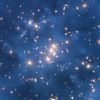 +35 +1
+35 +1Has dogma derailed the scientific search for dark matter?
The case for dark matter is regarded as so overwhelming that its existence is often reported as fact. Lately, though, cracks of doubt have started to appear… By Pavel Kroupa. (Nov. 25, 2016)
-
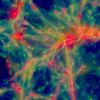 +2 +1
+2 +1First Image Ever of the Dark Matter Web that Connects Galaxies
A web-like superstructure predicted for decades.
-
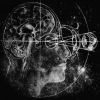 +8 +1
+8 +1Can Many-Worlds Theory Rescue Us From Boltzmann Brains?
Boltzmann’s theory leads to a paradox, where the very scientific assumption that we can trust what we observe leads to the conclusion that we can’t trust what we observe. By Brian Koberlein.
-
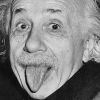 +16 +1
+16 +1The 10 weirdest physics facts, from relativity to quantum physics
People who think science is dull are wrong. Here are 10 reasons why. By Tom Chivers (Nov. 12, 2009)
-
 +18 +1
+18 +1Physicists Uncover Geometric ‘Theory Space’
A decades-old method called the “bootstrap” is enabling new discoveries about the geometry underlying all quantum theories. By Natalie Wolchover.
-
 +2 +1
+2 +1What is the Intergalactic Union?
Intergalactic Union, this is the official Intergalactic Union's Website. Learn the truth about extraterrestrials here. Extraterrestrials are real, they are watching you, and they do have a plan. Stay informed at intergalacticunion.com.
-
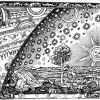 +16 +1
+16 +1The quantum and cosmological multiverses merge into one bizarre structure
If multiverses seem weird, it’s because we need to revamp our notions of time and space. By Dan Falk.
-
 +22 +1
+22 +1Fictional Multiverses Are Frankly Kind of Lame
And sorry, Eleven, but psychic powers won’t transport you to another world. By Shannon Stirone.
-
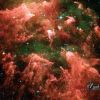 +41 +1
+41 +1Violations of energy conservation in the early universe may explain dark energy
Physicists have proposed that violations of energy conservation in the early universe, as predicted by certain modified theories of quantum mechanics and quantum gravity, may explain the cosmological constant problem, which is sometimes referred to as “the worst theoretical prediction in the history of physics.” By Lisa Zyga.
-
 +29 +1
+29 +1Why Most Planets Will Either Be Lush or Dead
The Gaia hypothesis implies that once alien life takes hold, it will flourish. By David Grinspoon.
-
 +55 +1
+55 +1Neil deGrasse Tyson thinks there's a 'very high' chance the universe is just a simulation
We trust the scientists around us to have the best grasp on what's really happening in the world. So is it disturbing if some think the world might not be...
-
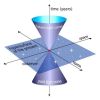 +6 +1
+6 +1Why must time be a dimension?
Sure, we move through it just like space, but it was the aftermath of Einstein that led to us truly understanding it. By Ethan Siegel.
-
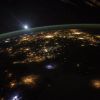 +32 +1
+32 +1Humanity is cosmically special. Here’s how we know.
Astrophysics suggests we will be alone in the universe for eons.
-
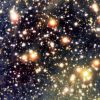 +13 +1
+13 +1Neutron Star May Reveal First Evidence of 80-Year-Old Quantum Prediction
A strange quantum phenomenon predicted more than 80 years ago may have finally been observed in nature, thanks to a neutron star. By Calla Cofield.
-
 +8 +1
+8 +1When Einstein Tilted at Windmills
The young physicist’s quest to prove the theories of Ernst Mach. By Amanda Gefter.
-
 +7 +1
+7 +1Fast Radio Bursts as Cosmological Probes
“Besides probing a heretofore-unknown astrophysical phenomenon, the bursts potentially carry imprints of propagation through inhomogeneous, magnetized plasma in the ionized interstellar media of other galaxies, and the diffuse intergalactic medium.” By Paul Gilster.
-
 +19 +1
+19 +1Dark energy could force the universe to gradually unzip itself
If dark energy is changing at different rates across the universe, that could force the universe to end in a “Little Rip” - eventually. By Rebecca Boyle.
-
 +3 +1
+3 +1The Fascinating History of the Meridian Lines Hidden in Catholic Churches
After centuries of war, Catholicism and science reconciled over meridian lines.
-
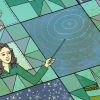 +17 +1
+17 +1The origins of dark matter
Transitions are everywhere we look. Water freezes, melts, or boils; chemical bonds break and form to make new substances out of different arrangements of atoms. The universe itself went through major transitions in early times. New particles were created and destroyed continually until things cooled enough to let them survive. Those particles include ones we know about, such as the Higgs boson or the top quark. But they could also include dark matter, invisible particles which we presently know only because of their gravitational effects.
-
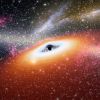 +20 +1
+20 +1Tangled Up in Spacetime
Hundreds of researchers in a collaborative project called “It from Qubit” say space and time may spring up from the quantum entanglement of tiny bits of information. By Clara Moskowitz.
Submit a link
Start a discussion




















